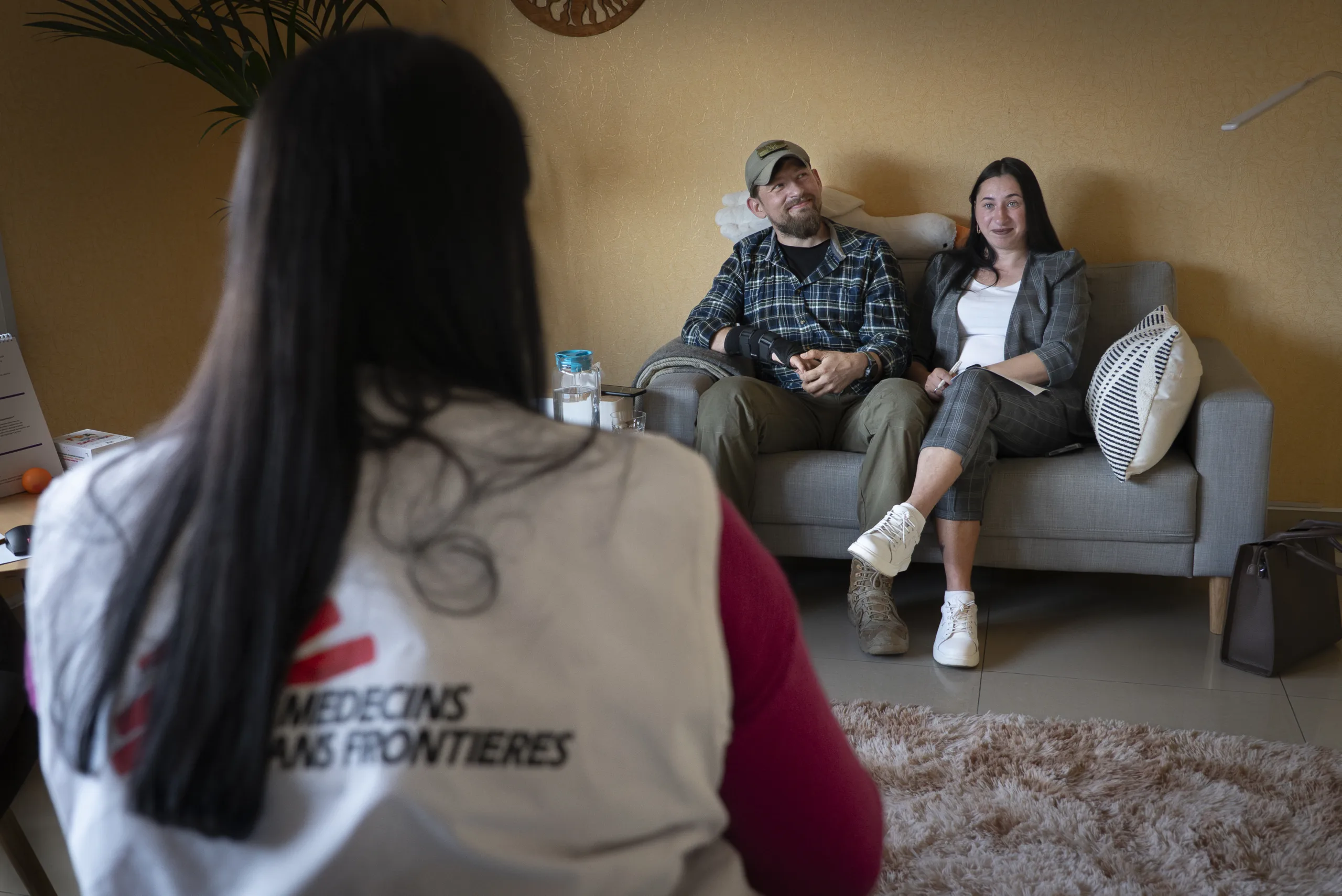In Vinnytsia and other cities of Ukraine, there has been a significant increase in the number of people seeking help for post-traumatic stress disorder. According to the international organisation Médecins Sans Frontières, the number of patients in need of PTSD treatment has increased rapidly over the past year. This is one of the worrying consequences of a full-scale war, which is increasingly affecting the mental health of the population.
Read also: ‘Médecins Sans Frontières launches new solution for evacuating wounded in Ukraine
According to the World Health Organization, almost half of Ukrainians suffer from war-related mental disorders. Médecins Sans Frontières notes that special attention is paid to veterans, people living near the frontline, IDPs and families of the wounded.
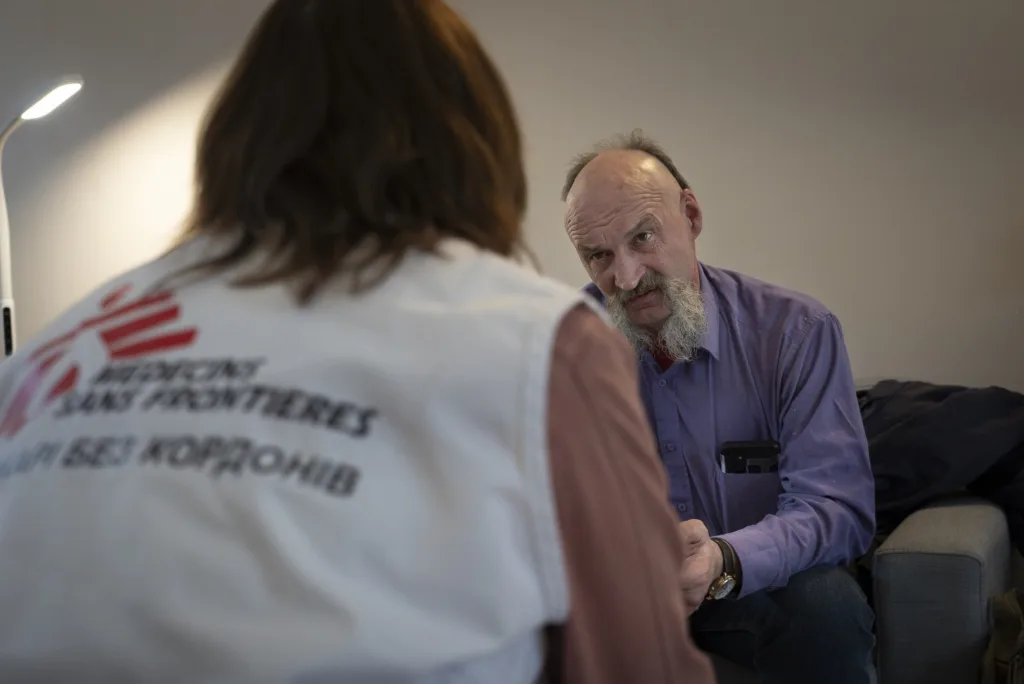
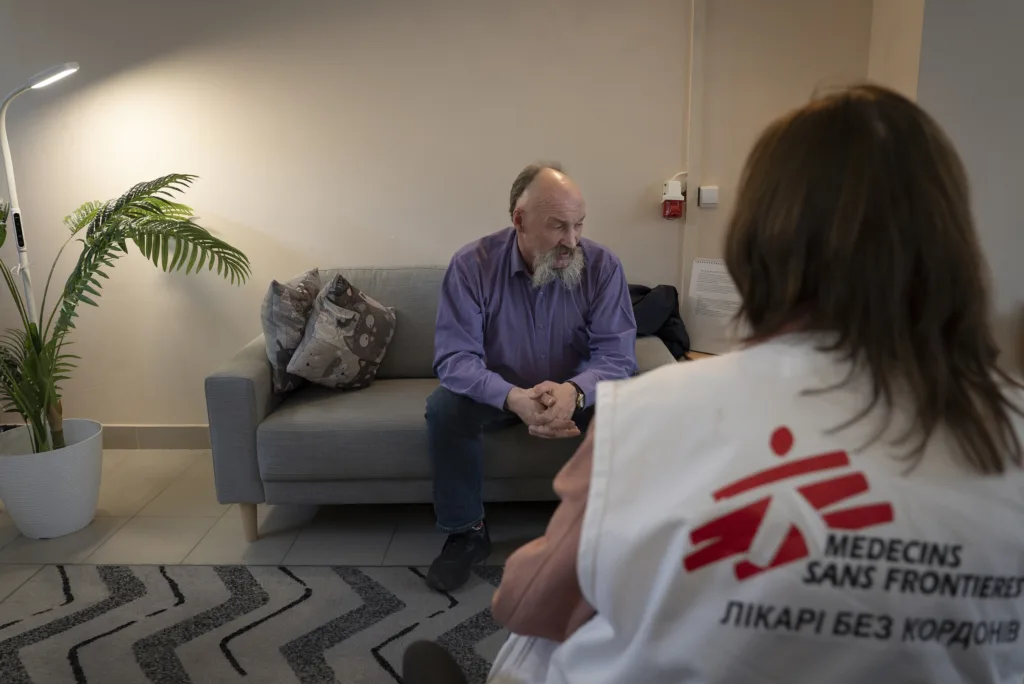

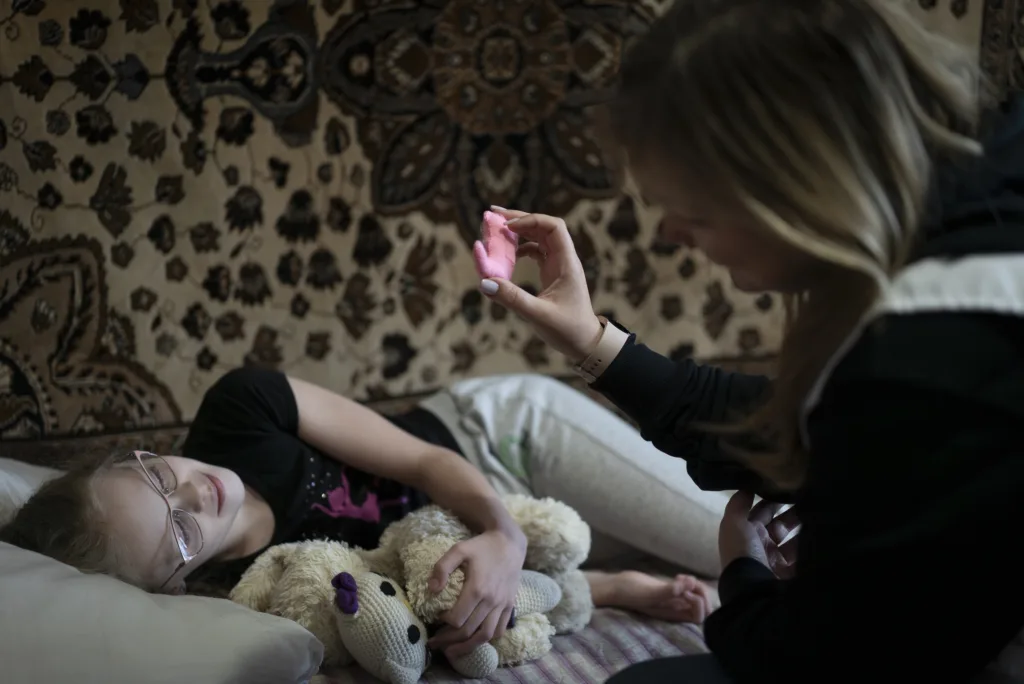


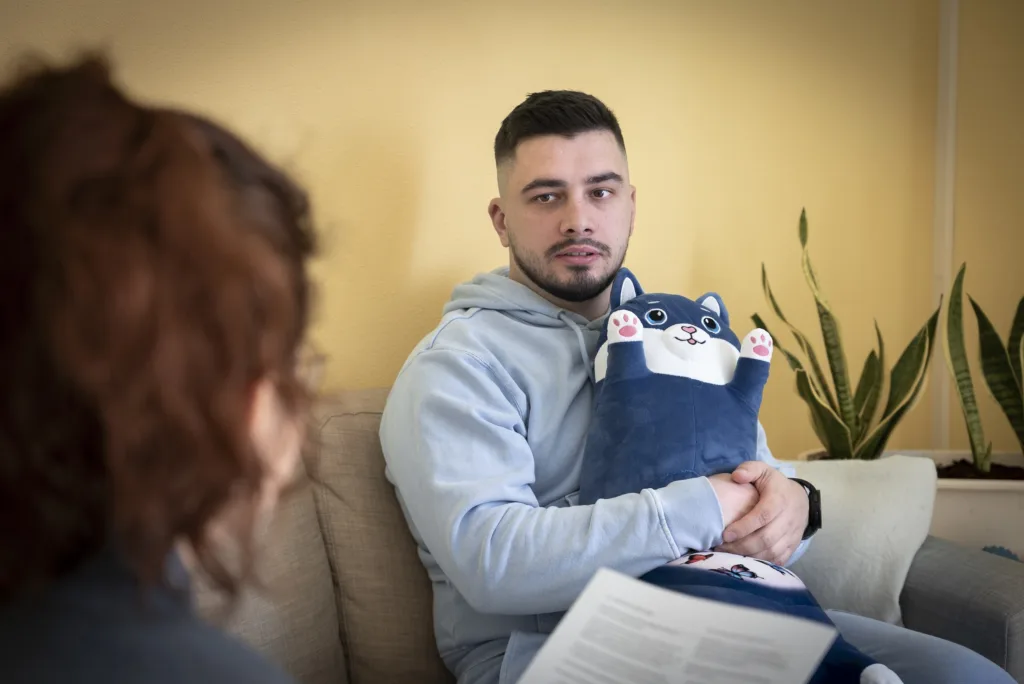
The psychological support centre in Vinnytsia, opened by the organisation, works with those who have lived through traumatic experiences. The team consists of psychiatrists, psychologists and social workers who provide both individual sessions and group therapy. Treatment includes modern techniques such as desensitisation and eye movement desensitisation and reprocessing (EMDR).
According to medical coordinator Christine Mwongera, the monthly number of patients at the centre has more than doubled in a year and a half, from 57 in January 2024 to 118 in April 2025. The increase is particularly noticeable among men, many of whom are veterans who have returned from the frontline and are trying to adapt to civilian life.
Read also: Rehabilitation in Ukraine after war trauma: the experience of Médecins Sans Frontières
Experts point out that stigmatisation of mental disorders is still a barrier for many, especially men. Many of them prefer to cope with the symptoms on their own. However, the consequences of PTSD can have a serious impact on everyday life – from insomnia and depression to risky behaviour and poor physical health.
Oleksandr Zeleny, a 27-year-old veteran who survived a serious injury and lengthy rehabilitation, shares that with time and support, he was able to regain his inner balance. Now he is preparing for a new job where he will help other wounded soldiers: “I believe I am ready to share my experience and support those who are also going through this journey.”
Despite the invisibility of such injuries, experts emphasise that post-traumatic stress disorder is a real challenge that requires professional help. In the context of war, mental health care is no less important than physical treatment.
Read also: Deputy Chief Coordinator of Médecins Sans Frontières in Ukraine Andriy Slavutskyi: Our task is to support access to decent medicine



